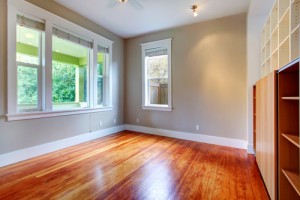
Upon hearing that your hardwood floors will suffer some effects of seasonality, you might be confused as to what exactly that means. Most people think of seasonality strictly from a business standpoint.
A seasonal business, such as a ski resort, is usually dependent on the revenue they earn during a specific season in order to operate for the rest of the year. When it comes to your hardwood floors, seasonal changes can actually have more of an effect than you might think.
Seasonal Floors??
When we talk about the seasonality of your hardwood floors, we are primarily referring to seasonal movements of your floor. With changing temperatures and levels of humidity in the air, your hardwood floors can actually experience slight movements.
This phenomenon is most common during the winter months. Colder temperatures can cause your hardwood floors to contract ever so slightly, opening up space for movement.
In the worst cases, seasonal movement can also result in cracking between the boards in your floor. As the humidity in the air decreases, your floor boards contract, essentially opening them up to cracks.
As you know, changes in the outside environment will also result in a change in your indoor environment. Seasonal humidity changes are the primary culprit responsible for the expansion and contraction of your hardwood floors.
Fortunately, there are ways in which you can make efforts to regulate the humidity levels in your home, effectively keeping them steadier, despite large changes in the weather outside.
Regulating Humidity Levels
Putting a quality humidifier to use for you is one simple way that you can prevent your floors from experiencing an unacceptable level of dryness. If you regulate extreme humidity swings within your home, your floors are more likely to close up effectively when seasonal humidity levels rise again in the spring and summer months.
Allowing those extreme humidity swings to take place in your home can prevent your floors from fully closing up again in the spring and summer, effectively compromising the overall integrity of your hardwood floors.
In short, your hardwood floors need to be protected from the extremities of humidity swings and temperature changes in your home. More extreme changes can result in a greater degree of cracking of your hardwood floors.
Maintaining consistent humidity levels in your home on a year-round basis will help you keep your hardwood floors in the best condition for the longest period of time.
Making Sure You’re Covered
If you are concerned that your floors might have been compromised by seasonal changes in temperature and humidity levels, the spring and summer months are recommended for bringing in a professional to evaluate the status of your floors. At this time, any abnormal problems should be identified and suggestions for fixing them should be presented.
If you are unsure about how your hardwood floors have weathered the winter months, don’t hesitate to contact the professionals at Smith Bros Flooring.
You can find visit us online or give us a call at 403-255-7791 today!